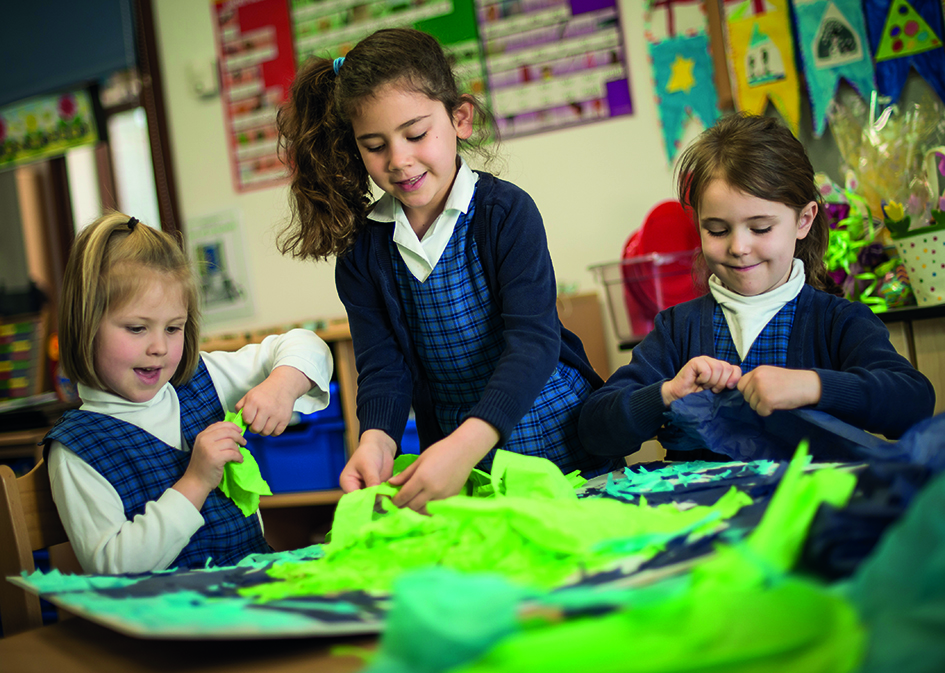St Mary’s School, Cambridge, discuss teaching their pupils the value of coping effectively with failure and the benefits of a ‘growth mindset’
As part of our commitment to developing our education provision, our Teaching and Learning Committee regularly reviews current best practice to ensure our school community is continuously inspired. Reviewing, rethinking and revising our attitudes to, and methods of, teaching ensures staff and students cooperate to create the best possible environment for academic and personal growth for all – most recently promoting a growth mindset as opposed to a fixed one.
Each of us learns in a different way. Those of us who teach also teach in different ways. These different styles, comfort zones and attitudes to teaching and learning are due to different mind frames, which affect our personal lives as well as professional. An individual’s penchant for a growth mindset versus a fixed mindset will affect the way they converse and interact with others, set goals and how they view their own and others’ capacity for success.
A growth mindset refers to those people who are wired to respond well to challenge or failure which, especially for educators and parents who are responsible for nurturing young people during their formative years, is an extremely important attitude to encourage and instil in students. To take seriously our commitment to ‘coping effectively with failure’ (one of the 12 Mary Ward characteristics on which the school’s ethos is based) it is essential not only to pay lip service to but also to create – based on best practice recommendations – a learning environment in which all young people are able and feel comfortable to pursue any dream they wish.
Individuals who hold a growth mindset perceive themselves (and others) as having the capacity to learn, to improve, to grow and eventually to succeed. In contrast, those with a fixed mindset will claim “I’ll never be intelligent” or “I can’t run” – holding on to a belief that making progress in any of these areas of difficulty is simply not possible. An example of learning that highlights the benefits of a growth mindset can be seen through the YouTube clip ‘Austin’s butterfly’, in which a group of junior school pupils are shown how another pupil, Austin, was able to make significant improvements to his work on receiving positive and specific feedback on his first attempt at a scientific drawing of a butterfly. Had Austin given up after his first attempt, he may have believed he was only average, or worse, at scientific drawing; an attitude which, sadly, is often wrongly ingrained in young minds only to hang around for life, if left unchecked.
“Had Austin given up after his first attempt, he may have believed he was only average, or worse”
At our school we strongly believe that intelligence and ability are not predetermined, nor set in stone. What’s more, a fixed mindset negatively affects those children who aren’t (yet) struggling just as much as it affects children who may have a longer term experience of dealing with disappointment or failure. A child who has a natural aptitude for academic study and doesn’t have to work hard until they reach A Level, will suffer just as much from a fixed mindset outlook as a pupil in Year 2 who constantly feels they are unable to comprehend the level of Mathematics their peers are understanding. Both children would conclude that “I can’t do it”. On receiving her first C grade the A level student would be no better equipped to deal with this setback, or perceived ‘failure’, than the Year 2 pupil who consistently feels like a failure. However, if both of the children held a growth mindset attitude, their reactions would be very different, accepting and reminding themselves of a different version of the truth: “I can’t do it – yet!”
Education Secretary Nicky Morgan might argue that it isn’t possible to spend time marking papers with the grade ‘not yet’ when there are targets to be met or comparisons to be made between schools through league tables. The debate on fact-based or skills-based learning is only going to get louder in the coming months and it is important to address what the purpose is of teaching and learning. Retraining the minds of our young people is beneficial for all – both for those who are achieving highly (so that they are prepared for the difficulties which will inevitably arrive later in life) as much as for those who are ‘not yet’ achieving as highly. Imagine a school of young women for whom the natural reaction to failure or difficulty is “I’m not good at that – YET”!

